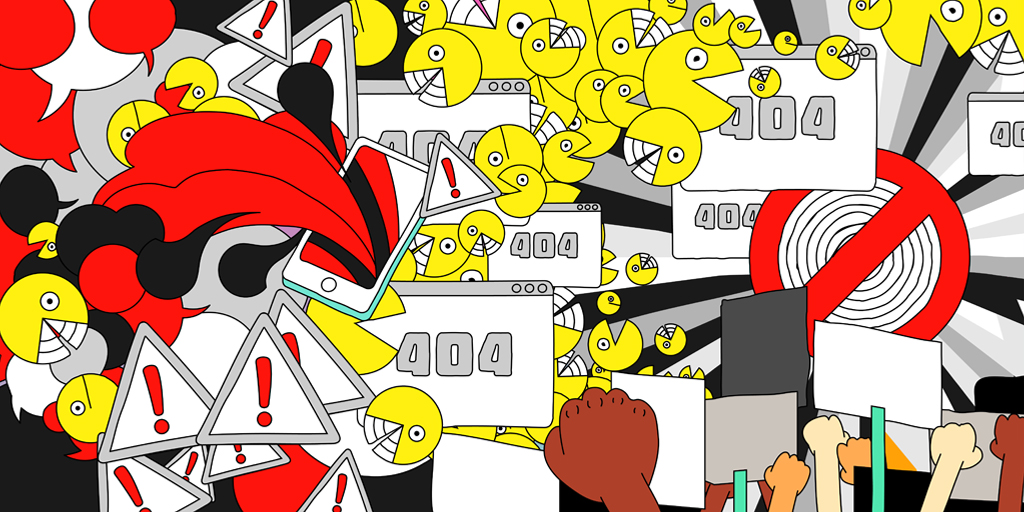Social media platforms continue to fail the global majority during armed conflict, crises, and war. From Ethiopia to Syria and Myanmar, human rights are repeatedly ignored or deliberately discounted by companies like Twitter, Meta, and Google who allow disinformation to flourish, hate speech to fester, and unjust and inconsistent take-down practices to control the narrative.
Not anymore. Through the new Declaration of principles for content and platform governance in times of crisis launched today, November 29, at the Internet Governance Forum, Access Now and partners lay out principles for these platforms to overhaul the status quo and help ensure privacy, freedom of expression, and access to information for all. Read the full declaration and snapshot.
“The amount of damage social media companies’ opaque, under-resourced, and ignorant policies and practices have caused during times of crisis and turmoil is immeasurable,” said Marwa Fatafta, MENA Advocacy and Policy Manager at Access Now. “Their modus operandi has been: if it’s not in English, if it’s not happening in ‘the west,’ and it’s not affecting their profit margins, then it’s not worth investing time and energy into. It’s time to change how these companies think.”
Born out of a RightsCon 2022 Solve my Problem session, which brought together content moderation experts and civil society actors exasperated by social media companies’ inadequate and inequitable approach to content and platform governance, the Declaration sets out the principles platforms must adhere to in times of crises, with specific recommendations for action before, during, and post crises, including: conducting rapid and conflict-sensitive human rights due diligence to address the living cycle of crises, situations of conflict, and human vulnerabilities; creating meaningful engagement channels with relevant independent stakeholders; implementing transition phases before winding down platform operations; and more.
“Social media companies have no excuse to not uphold, promote, and solidify the rights of people on their platforms during critical situations,” said Eliška Pírková, Europe Policy Analyst and Global Freedom of Expression Lead at Access Now. “They have a key role to play before, during, and post crises, and must find solutions to situations that can be addressed and mitigated before they unfolded. ”
Social media can be a lifeline during crises — a place to document human rights abuses, access information, and crowdsource humanitarian assistance. At the same time, it can be used by malicious actors to spread disinformation and hate speech, incite violence, and surveil. Companies like Twitter, Meta, and Google must step up and abide by the Declaration and commit to human rights for all.
The Declaration was developed by Access Now, ARTICLE 19, Mnemonic, the Center for Democracy and Technology, JustPeace Labs, Digital Security Lab Ukraine, Centre for Democracy and Rule of Law (CEDEM), and the Myanmar Internet Project.
Read the full declaration and snapshot.
